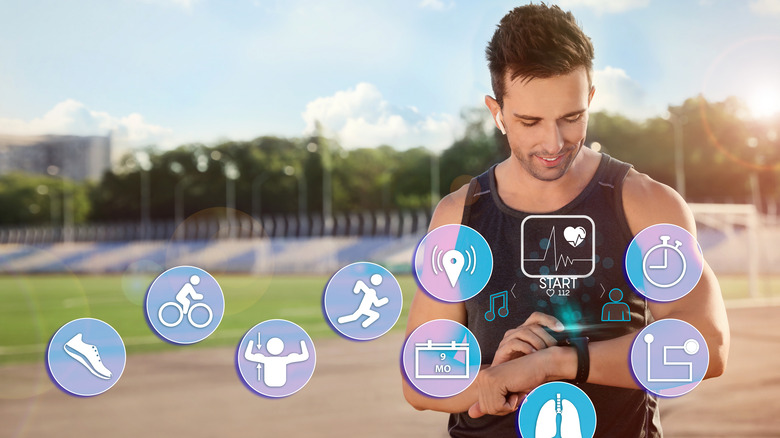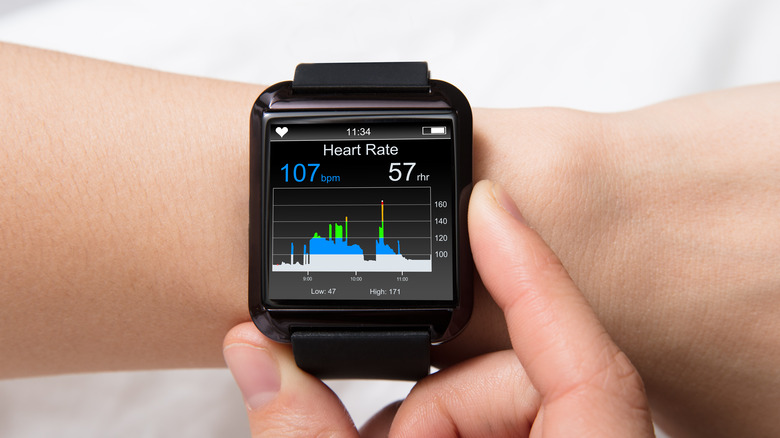Things You Didn't Know Your Fitness Tracker Could Do
Fitness trackers are wearable electronic devices that track your movement and physical activity. While they're more commonly known for their pedometer function, they can do a lot more than just count your steps (via The Verge). As it turns out, fitness trackers can also monitor your vitals and measure your progress.
For instance, fitness trackers can time your workouts for specific activities, like running or bicycling. Some of them are even water-resistant, so you can wear one while you swim. It can also be helpful to buy a fitness tracker with a GPS function in case you get lost when you're out on a hike or run.
Fitness trackers also contain quite a few health monitoring features. In addition to tracking your heart rate and heart beat, some fitness trackers contain a built-in electrocardiogram, which can monitor the electrical activity of the heart to alert you if it detects a harmful arrhythmia like atrial fibrillation.
Can fitness trackers improve your health?
If you've noticed an improvement in your health and fitness since you've started using your fitness tracker, you may be wondering if your device can actually improve your overall health (via Runner's World). According to a 2019 study published in the American Journal of Medicine, there's no evidence to suggest that using a fitness tracker on a regular basis can noticeably lower your blood pressure and cholesterol or promote weight loss. However, fitness trackers have been shown to increase your motivation to work out, which can potentially lead to an improvement in your health.
"Fitness trackers may motivate people to move for [a little while], but it may not be enough to make people exercise [an amount] that is significantly associated with health outcomes," Dr. Ara Jo, a co-author of the study and clinical assistant professor at the University of Florida's College of Public Health and Health Professions, told Runner's World. However, "if fitness trackers help people not only to [just] move, but also to exercise for about 15 to 20 minutes or more, it may benefit health outcomes."


